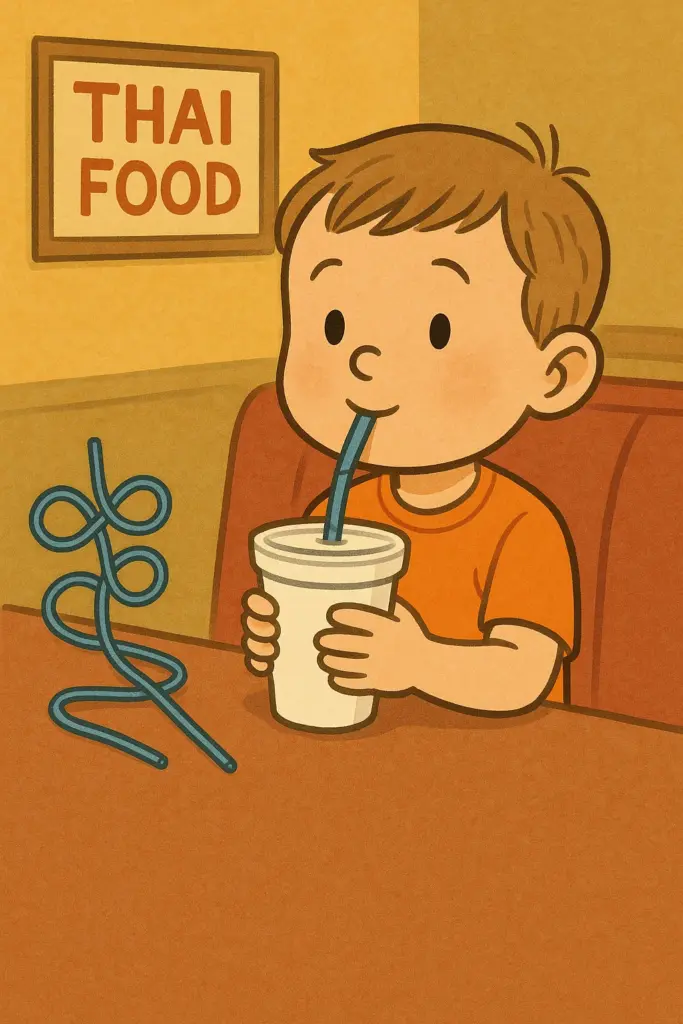We had lunch at a Thai food restaurant today, and they gave him a styrofoam cup of water with a straw. We have tried having him drink with a straw in the past, but today he figured it out and there was no stopping him. Remember those “crazy straws” growing up? I can't wait to give one to Tyler some day. We'll stick to the boring 'ol regular straws for now, but we were pretty...
